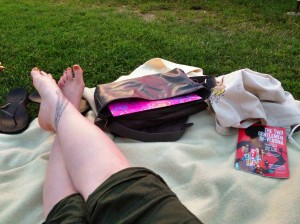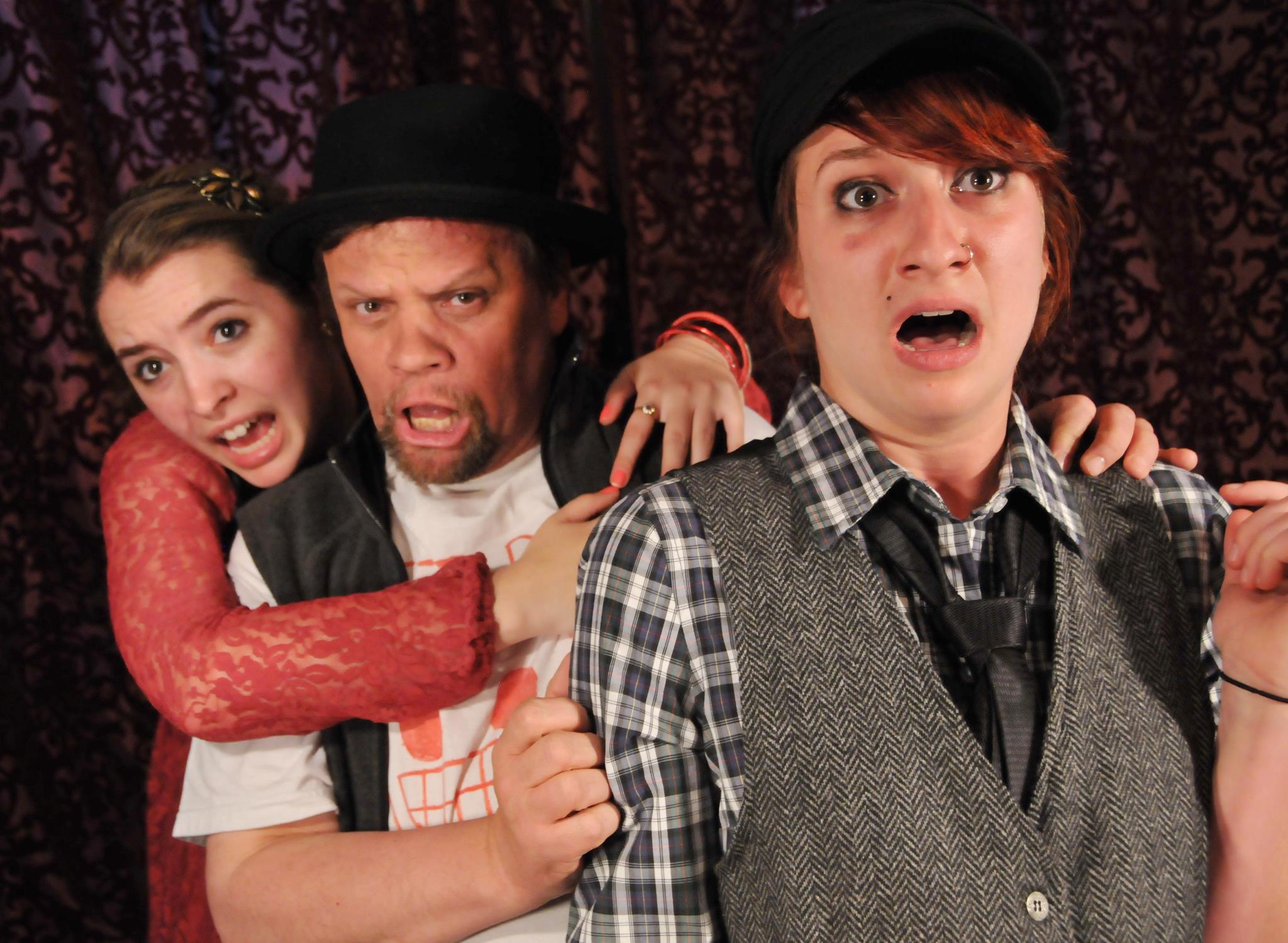This weekend, I had the pleasure of attending opening night of Commonwealth Shakespeare Company’s production of Two Gentlemen of Verona on Boston common.
After last year’s middling Coriolanus, I didn’t have high hopes for this (…that may also be the comps brain talking since I’m not sure I could work up the energy to have high hopes about anything right now). Especially after reading that the concept was “rat pack”. I just wasn’t sure things would work out; Two Gents is a notoriously difficult play to make read to a modern audience, Shakespeare on the Common is notoriously not the sum of its parts for whatever reason, and Boston weather patterns make outdoor evening theatre a gamble at best.
But somehow, despite all this, the cosmos aligned and it was truly a production worth seeing!
Jenna Augen’s Julia was absolutely adorable (even in the face of a tragic act-one kerfluffle in which Mimi Bilinski, her Lucetta, failed to come onstage at her cue and left poor Augen to live out the actor’s nightmare: scrambling to cover for a co-star while under the pressure of rhymed iambic pentameter). She had some sauce and spice and a decidedly different take on the Act V reversal (which I won’t ruin for you since I want to encourage you to go see the show).
Rimo Airaldi’s Speed and Larry Coen’s Launce were a comic duo that actually made sense. They played the jokes to a T and, despite any misgivings I had about an older more august Speed, I was quickly charmed into their clutches.
Rick Park’s Duke of Milan is the best I’ve ever seen. His portrayal of an incensed father in III.i (the scene during which Valentine is outcast) was real enough that I truly believed he would kill Valentine (Andrew Burnap) if given half the chance. And this, my friends, caused dramaturgical magic. Because the threat of death was so real, Burnap was able to launch into the most transcendent rendition of the “what light is light” speech that I have ever heard. I, the notorious curmudgeon, was moved to tears and could only be revivified by the liberal application of the annual CSC signature Ben and Jerry’s sundae (this year’s creation: the Crabbe Bag…. Eat one. You won’t regret it.).
In terms of the concept, it worked a lot better than I expected it to. The outlaws in the woods became Wild West clowns/menaces and Act V devolved into a road-runner style farcical chase complete with door-swinging and dance-hiding. Because of this, the general tone of disingenuousness led to a ready acceptance of the notoriously hard to stage Act V reversal. Well done, CSC. Well done.
I have only two complaints. The first is that there was no fight director or violence coordinator billed in the program while I certainly saw some onstage violence. If you need to understand the importance of this, let me guide you self-promotionally to the following youtube interview with some people who know what they are talking about in this regard.
The second is that in order to serve the concept, the director chose to include a liberal amount of extra-textual music numbers. Julia burst out with “fever”, Launce sang “ain’t that a kick in the head?”, etc. These music numbers, though well executed, slowed the pace of the first act to a crawl. It would have served just as well to include half the number of musical interludes and I think it would have kept the audience more engaged not to be bursting into non-Shakespeare song every ten to fifteen minutes.
As I said, on the whole this was a very good rendition of a hard-to-perform piece. If nothing else, it’s a free evening of entertainment, the common is beautiful this time of year, and you can enjoy your own picnic libations with some good company while waiting for curtain.
Though if you, like me, get the sudden urge to fox trot when any of the rat pack tunes are played by a live jazz band, be prepared to bring some dancing shoes.




